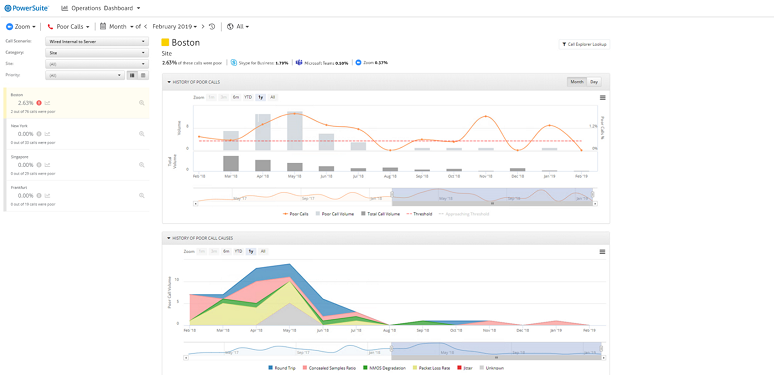Even as enterprise IT decision makers carefully vet products for factors such as security, manageability, and support, end users willfully grab freemium versions of tools they think will help them get their jobs done. Such is the way of the world today -- a reality that’s left many IT leaders struggling to identify exactly what’s in use in their organizations and to then figure out how to make the best of what’s out there.
Among its customer base of primarily Fortune 100 companies,
Unify Square has seen this time and again, said John Case, CEO of the UC management provider. “We’re looking at these growth trends in the market -- we see what’s happening with messaging, what’s happening with collaboration, what’s happening with video.”
Over the years, Unify Square has built a business out of providing management tools and services for Microsoft-based communications and collaboration environments -- first for
Lync, then
Skype for Business, and as of last summer,
Teams. Now, the company has determined, it’s time to expand its management capabilities to other collaboration platforms that are gaining prominence within the enterprise, whether or not they’re running alongside a Microsoft suite, Case said.
This isn’t to say that platforms like Microsoft’s are getting weaker, he added, but that enterprises are adding others into the mix. “A lot of companies -- our customers -- are thinking everyday about how they can layer on solutions to make their employees more successful.”
Toward that end, Unify Square earlier this week announced it will be adding Zoom, Slack, and Workplace by Facebook to its
PowerSuite roster, working with those respective vendors on how to consume the data required to manage their wares. As it brings these non-Microsoft products under management, PowerSuite morphs into a cross-platform management and security tool for voice, meetings, and workstream collaboration. This should be a boon for enterprise IT managers, enabling them to strengthen governance, compliance, and usage policies across the disparate vendors’ solutions.
While Unify Square will initially provide dedicated offerings for each of the products, those IT organizations managing multiple collaboration platforms -- Teams and Zoom, Slack and Skype for Business, or Zoom and Workplace by Facebook, for example -- will be able to get actionable guidance across them, Case said. On a platform-by-platform level, for example, they’ll be able to see usage data -- who, where, how often, he added. In addition, Unify Square will add Zoom, Slack, and Workplace by Facebook as options in its consulting and managed services portfolio, Case said.
First out of the bag will be Zoom support in PowerSuite, which Case said is nearly ready for internal testing and trials with key customers. The Slack and Workplace by Facebook offerings will follow almost immediately thereafter; “these are all things we’ve been working on in parallel,” he said, noting that the company designated much of the $10 million in Series C funding it received last summer to these development efforts. In other words, he added, Unify Square hasn’t taken development dollars from its Microsoft program to build out these new offerings.
“We’re very enthusiastic about Teams long term. Teams is becoming a very well-used platform. … This is not about us stepping away from Microsoft, but just the opposite,” Case said. “A lot of our customers are using Office 365 plus something -- and that’s what this strategy is about.”
And should you be wondering why Unify Square didn’t opt to add management support for Cisco collaboration tools, given their widespread use, Case had this to say: “Cisco is a well-established play … and there are some big vendors that do that management very well. We felt we weren’t going to bring enough additional advantage to that short term.”











